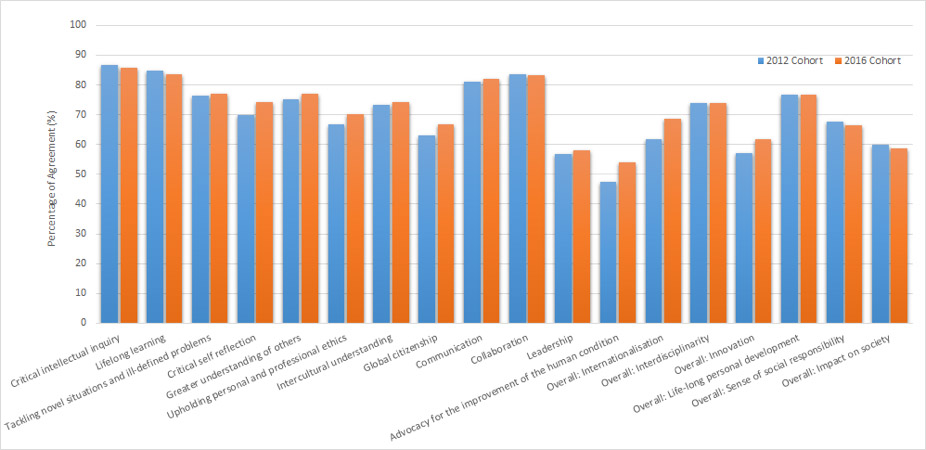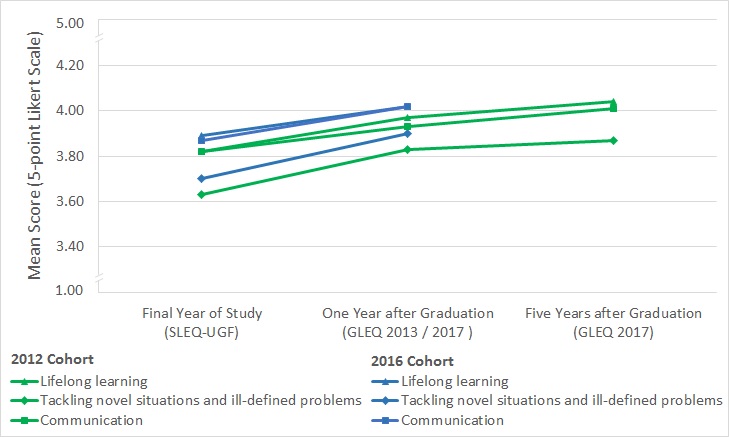2017 GLEQ KEY FINDINGS
Highlights of Findings
- More than half of the respondents agreed or strongly agreed on all of the questions pertaining to HKU’s Educational Aims. The three highest percentages emerged on the scales of Critical Intellectual Inquiry, Lifelong Learning and Collaboration (Figure 1).
- For questions on students’ overall learning experiences related to Internationalisation, Interdisciplinarity, Innovation and Impact (the University’s 3+1 Is Strategy), more than half of the respondents agreed or strongly agreed on all of the questions, with percentages ranging from 59% to 77% (Figure 1).
- Comparing to the final year at the University, graduates of both cohorts reported gains after graduation mainly on three scales: Tackling Novel Situations and Ill-defined Problems, Communication and Lifelong Learning. For the 2012 cohort, surveyed one year and then 5 years after graduation, the increasing trajectory on the Communication scale was sustained over time (Figure 2).
Detailed results at the institutional, Faculty and curriculum levels are available at the online Institutional Survey Reports System (ISRS), which enables Faculties to generate survey reports at various levels and make comparisons across years. All academic staff and administrative staff with access rights can directly access the System after logging on to the HKU Portal account (HKU Portal > Self Service > Teaching and Learning > Institutional Survey Reports > View Reports). Detailed instructions on using the System are available in the User Manual, downloadable here.
Faculties are welcome to contact Dr. Maggie Zhao at myzhao@hku.hk for support in interpreting and utilising survey data, and Ms. Yvonne Chan at chanyyw@hku.hk for technical support in using the System.

Figure 1. Agreement Percentages on All Aspects of Learning Experiences

Figure 2. Longitudinal Tracking of Students’ Learning Experience



